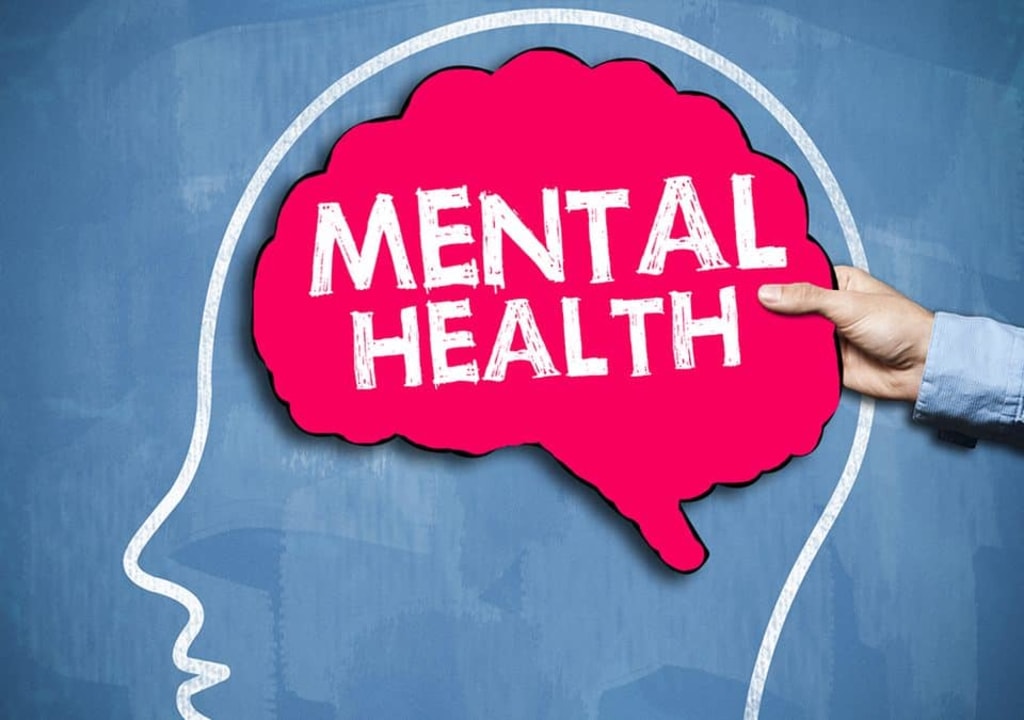
Why is mental health treatment dangerous? Mental illness can have devastating consequences. Untreated symptoms can lead to severe health conditions, lack of job stability, and prison. In some cases, it can lead to violent behavior, which in turn can lead to serious harm. In severe cases, the illness can even lead to suicide, as more than 90% of deaths from suicide are caused by mental illness. As a result, the risk of suicide cannot be overstated.
Untreated mental illness can lead to serious health problems
The economic and social costs associated with mental illness are enormous. This problem affects several sectors. The costs of mental illness range from lost income through unpaid unemployment, to social support costs, to incarceration and a range of indirect costs associated with chronic disability. It often starts in childhood, and symptoms can manifest as problems sleeping, energy, and concentration. It can also have a negative impact on a person's self-esteem.
A person suffering from a mental health disorder can become extremely isolated. Their relationships with friends and family may suffer. They may even fail to maintain their home or attend work. Their daily activities can become so difficult that they might end up homeless or bankrupt. If these problems are not addressed, they could suffer serious health consequences, such as homelessness or even the loss of their family, career, or career. Untreated mental illness can lead to serious health problems.
Untreated mental illness can lead to violent behavior
A study by the MacArthur Foundation found that the association between serious mental illness and violent behavior is mythical. While violent behavior was significantly higher among former mental patients, it was not the same for people with less severe mental illnesses. The study found that a number of other factors were associated with violent behavior among people with serious mental illness. Among these factors, a person's medication compliance was more likely to be problematic for people with untreated mental illness.
Although mental illness is not directly linked to violent behavior, it is commonly assumed. Moreover, media portrayals often contribute to the stigma surrounding these conditions. Television shows often depict people with mental illness, and more than half of them are shown to hurt or cause harm to others. News reports frequently show the relationship between mental illness and violent behavior. They also tend to focus on interpersonal violence. Therefore, it is crucial to treat mental illnesses as soon as they are detected.
ECT is the most effective treatment for disruptive mental illness symptoms
Although ECT is a proven treatment for many patients with disruptive mental illness symptoms, there are certain concerns associated with its use. The FDA approved the procedure only in 1996, and since then, there have been a number of controversies surrounding it. One such controversy revolves around the issue of informed consent. Informed consent is a legal requirement before a patient undergoes ECT. It can also involve the involvement of court-appointed guardians in the patient's care. It is crucial that patients and their families have adequate information about all treatment options, including ECT, before consenting to any procedure.
While ECT is an effective treatment for many patients suffering from disruptive mental illness symptoms, it can pose a risk to pregnant women. The risks of ECT during pregnancy are the same as those in patients who are not pregnant. They include transient memory disruption, confusion, nausea and vomiting, and muscle soreness. However, these risks are much lower than those associated with other types of medical procedures. Therefore, pregnant women should be monitored carefully during and after the procedure.
EMDR therapy relieves psychological stress
The number of EMDR sessions varies, ranging from a single session to 72. However, it is generally estimated that each therapy session will last between seven and eight sessions. The average session duration is one hour and ten minutes, with slightly more than 60 minutes. Because this therapy is a very effective treatment method for mental health disorders, it is increasingly being used as part of a comprehensive approach.
There is a considerable amount of heterogeneity within the EMDR literature, with over 22 different protocols. In addition, different protocols were reported in various categories of disorders, such as anxiety, depression, and OCD. However, there may be a common mechanism that may be at work for different conditions. To help researchers understand how EMDR works, it is crucial to conduct trials that include patients with multiple psychiatric conditions.
Stigma associated with mental illness
It's well documented that the stigma associated with mental illness is a major problem in the United States. The Surgeon General called the stigma "powerful" and the Secretary of Health and Human Services recently acknowledged that the stigma persists and can negatively affect people's self-esteem and ability to socialize, obtain employment, and get housing. Recent studies show that the stigma associated with mental illness has increased. Luckily, there are now many ways to combat this damaging stereotype and help people living with mental illness.
One of the most effective ways to combat the stigma associated with mental illness is to promote assisted treatment. By encouraging the use of assisted treatment, people with mental illness can experience fewer discrimination and become more independent in their own lives. The benefits of assisted treatment for mental illness are many, and the stigma associated with it is dangerous. But how can you combat it? First, let's define stigma. What is stigma? Stigma is the process by which people view you negatively. It can be overt or subtle. It can lead to self-judgment.
Costs of treating mental illness
The costs of treating mental illness are high, and the rates of hospitalization are often high, too. One study estimates that the cost of treating schizophrenia is nearly twice that of any other mental illness. The cost per patient varies greatly, but is significantly higher than those of major depression or any anxiety disorder. Among other factors that may increase cost, patients with schizophrenia have a higher rate of comorbid substance use disorders, such as alcoholism and other drugs.
The economic costs of treating mental disorders are enormous, and they affect multiple sectors. Mental illnesses lead the list of the most expensive medical conditions, costing more than $201 billion in the United States in 2012. More than 40 percent of that money is spent on institutionalized populations. Other costs include heart conditions, trauma, cancer, and pulmonary problems. Mental illnesses can cause substantial impairment to a person's life and career. A person suffering from depression or anxiety has a difficult time sleeping, concentrating, and achieving goals.





Comments
There are no comments for this story
Be the first to respond and start the conversation.